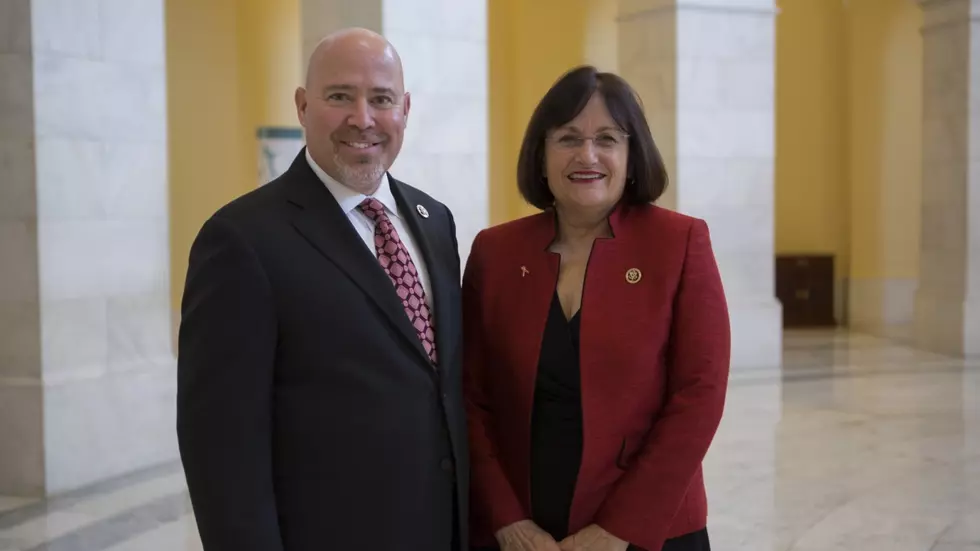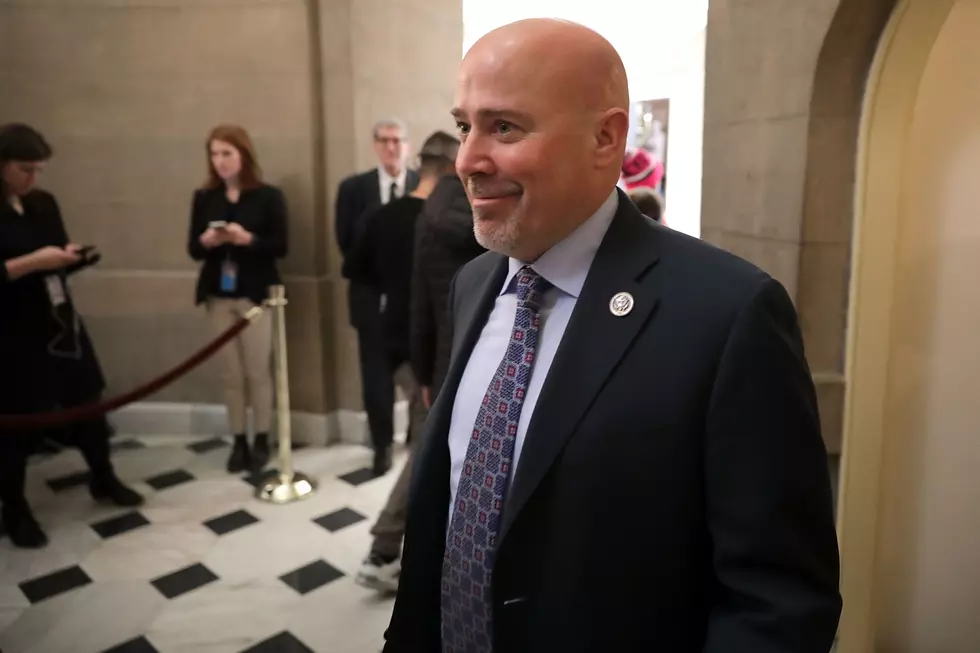
Stafford PD drug referral project lands on DC radar
WASHINGTON - A home-grown, self-funded pilot project to help drug abusers in Stafford Township beat their habits might be eligible for federal funds, following Police Chief Tom Dellane's presentation to the Congressional Bipartisan Heroin Task Force.
At the behest of shore Representative Tom MacArthur (R-3), Dellane appeared in early November alongside innovators of similar programs in New Hampshire and Maryland. MacArthur chairs the panel along with New Hampshire Democrat Annie Kuster. He said.that the buzz Dellane generated convinced him to find revenue.
The pilot program is a simple, yet effective, means of breaking through the wall that legally limits the ways that police can intervene for struggling families they find in responose calls. Now, police are paired with volunteer case workers of Ocean Mental Health Services, and offer contact information to reach the counselors.
"The idea was actually the brainchild of one of his officers," MacArthur said. "He immediately saw the potential...In the first year of the trial, they've helped nearly a hundred families," MacArthur said, adding that it extends to homelessness and other alienating matters that tear families apart.
MacArthur cited the case of a couple who spent so much time in a retail store parking lot, that they raised tensions among customers. "It turns out that the husband and wife were homeless," he said. "They had been able to move their children to a relative's house, but there was no room for them. Through the intervention of one of the on-point counselors, the entire family is in a home, together."
The Republican said that he's focusing his efforts on securing a Community Oriented Policing Services (COPS) grant. Kuster brought in a New Hampshire corrections officer who outlined his department's detox services for inmates. Projects such as these exist on whatever local funds can be obtained. It's a situation that MacArthur believes can be remedied, not necessarily by enacting laws, but by maximizing the efficiency of funding sources already in place.
Korean fact finding sojourn
MacArthur's late October visit to South Korea provides some of the information that President Trump is using in discussions with leaders of that nation, Japan and China this week. MacArthur briefed Vice President Mike Pence about his talks about security and commerce.
He was able to gauge, first-hand, the degree to which North-South relations are strained, and he reports that there's little exaggeration about the tension.
"The base commander brought me to the zone," he said. "There are three buildings used to negotiate, equally half on the South Korean side, and half on the North side." There is also a phone line that traverses the entire DMZ.
North Korean soldiers "ran out with cameras and binoculars, to check out who was here," MacArthur said. "The commander brought me into a negotiating room. They locked the North Koreans out. They told them in advance that they were going to [do so]...saying, 'We're bringing someone in, don't shoot.' Kind of bizarre, but the North Koreans have not answered the phone in four years. They had to use a bullhorn."
MacArthur visited Korea through the Mutual Education and Cultural Exchange program, used by members of Congress to gain passage for diplomatic purposes. He said he learned that America's policies serve as a critical undercurrent for South Korean coexistence with the North, China and Japan, all of which involve degrees of tension and strain.
As he has done in other parts of the world, Trump this week reiterated his intent to renegotiate trade agreements with Far East partners.
"The Korea-US Free Trade Agreement has been good for both countries, probably better for Korea," MacArthur said, adding that any talk of re-drafting it is unsettling for South Korean leaders. "But there's plenty of room for a deal that benefits both countries. They clearly want the US as a main trading partner, and not be pushed toward China. China makes them nervous."
It's a sentiment that MacArthur said he sensed among commerce leaders from the national to the local levels, though China was invoked as a likely trade-partner refuge if the US was to downscale its activity.
"I kept reminding them, 'China's not such a great partner for you. If you depend on them too much, you have a very large, somewhat aggressive country, right at your back door.' We really want to be their major trading partner. Trade and security go hand in hand."
Mute testimony of the alliance between the two nations stands in Seoul, where the War Memorial of Korea illustrates the names of every soldier, from every country, who died in the conflict. MacArthur said it's deeply rooted in Korean culture.
"I walked down about 85 percent of this long hall of engraved names before I got out of America, and into any other country," he remarked. "They know that America has sacrificed a lot for their nation. I think relations are very, very solid. It doesn't mean that they can't be improved. Much of it took form when Korea was economically disadvantaged. Today, they're the 11th largest economy in the world."
MacArthur also the Eastern Social Welfare Society, the agency that paired him with two of the three children he and his wife raised. "They have helped about 60,000 babies be adopted over the decades," he said. "It was heartwarming for me to meet with the people who actually helped us adopt our children. Our youngest daughter [Isabella] is 20 now, and she was six months to the day when she came to the US. Our son [David] is now 27. He came when he was a year old."
Greets US citizenship candidates in Toms River Monday
On November 13 in the Toms River Municipal Building, MacArthur will lead a contingent of dignitaries welcoming 20 immigrants earning American citizenship and their families. The emigres are from Egypt, the Philippines, Dominican Republic, Ghana, United Kingdom, Haiti, Peru, Guyana, Ireland, China, Colombia, Italy, Brazil, and India.
Also attending are US Citizenship and Immigration Services (USCIS) Regional Director John Thompson, Deputy District Director Tamika Gray, Field Office Director Ya-Mei Chen, and Supervisory Immigration Services Director Keith Dorr.
More from the Shore:
More From 92.7 WOBM









